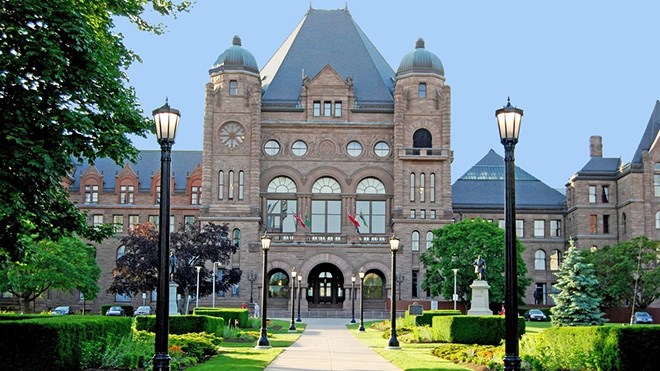GUELPH - Mental health advocate Noah Irvine says the Ontario government’s move to create an associate Ministry of Mental Health and Addictions is big leap forward over the previous Liberal government, but he hopes the funding will be put in place to make it effective.
The Ontario government announced the creation of an associate Ministry of Mental Health and Addictions as part of a cabinet shuffle made Thursday, with PC MPP Michael Tibollo being named associate minister to the file.
Irvine said Tibollo is also one of the few Progressive Conservative provincial cabinet ministers to respond to a letter-writing campaign by the teen last year.
“I think he’s not a bad pick for this. It’s a matter of whether he will be given the freedom and whether they will fund it correctly,” said Irvine.
The idea of creating a sub-ministry dealing with mental health under the umbrella of the Ministry of Health and Long-Term Care was originally brought up in 2010 during the All-Party Select Committee on Mental Health.
The former Liberal government did not implement the recommendation to create the associate ministry. Irvine said the Progressive Conservative government has taken a far greater step than the previous Liberal government when it comes to creating the associate ministry.
“This is far more progressive than I thought they were going to be with this. Far more progressive,” said Irvine. “But what will it do in the long run? I’m not really sure because they are dropping the economic ball with regards to mental health and addictions services. Will it do what it is intended to do? I really don’t know.”
Reached by phone Friday, Tibollo said he met with the former health minister and premier Kathleen Wynne a few years ago in his previous role working as a certified addictions counsellor. He said his concerns were ignored by the Liberals and he decided to run for the PCs in his riding of Vaughan-Woodbridge when he heard about that party’s election promises to spend $3.8 billion on mental health and addictions, including matching funds from the federal government.
“It became very clear the commitment of the (PCs) at the time to want to build a model that would work and make it right,” said Tibollo.
With a career in law, addictions counselling and his previous stints as minister of Community Safety and Correctional Services, Tibollo said heading the associate ministry of Mental Health and Addictions is the job of his dreams.
He is also working toward a doctorate in clinical psychology with an emphasis on addictions and concurrent disorders at the University of Southern California.
“This really ties into everything I have spent the last 10 years learning about and the last three years formally studying,” said Tibollo.
He hopes to build a one-of-a-kind system in Ontario that will hopefully become a model for the rest of the country when it comes to mental health and addictions.
I am hoping what we can do is create an integrated approach that will see all aspects of government involved in this,” said Tibollo.
“It’s not just a question of looking at it as a health issue, it’s a housing issue, it’s a family support services issue, it’s a community-based issue, it’s an educational issue, it’s a senior’s issue — there are so many aspects of this issue that require an interwoven, holistic approach to it,” he said.
Tibollo said he became even more passionate about counselling people dealing with mental health and addictions when, about 10 years ago, a man seeking treatment later told Tibollo he was considering suicide on the day he walked through the door.
He said the man told him that years later, after the man had graduated from the program.
“It motivated me to do more of this,” said Tibollo.
“You make cuts but then you make a very progressive step forward — it’s hard to know what’s going on,” said Irvine. “Quite honestly, I think this could also be a bit of a partisan game that the Ford government is playing to try to get public opinion back on their side, because they need it. They have made some people very, very angry.”
